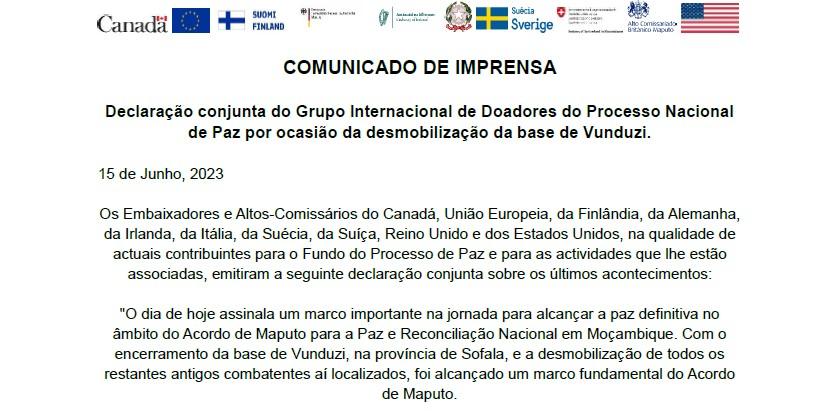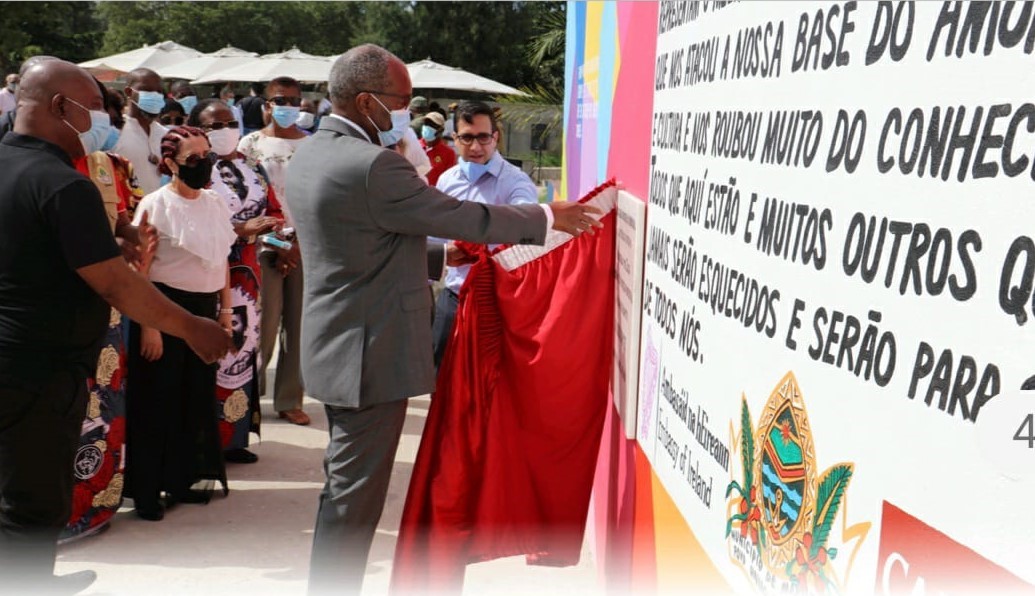The Government of Ireland and UNICEF provide support in the fight against severe malnutrition
News
05 June 2018The Irish Government, through Irish Aid, is funding the implementation of the Emergency Nutrition Component in Inhambane Province through the United Nations Children's Fund (UNICEF), to improve the lives of children under five years of age affected by severe acute malnutrition. For the early detection and treatment of stunting, wasting and underweight children, Irish Aid in Inhambane today donated 200 anthropometric devices (scales, anthropometers) to the Inhambane Provincial Health Directorate to equip its Health Centers and help monitor the nutritional status of children in the province.
“Thanks to these resources, we will develop cost-effective and sustainable models to coordinate and monitor severe and moderate cases of acute malnutrition, access by rural communities to early detection of malnutrition and nutritional rehabilitation of children, " said Marcoluigi Corsi of UNICEF in Mozambique. “Children in affected areas need this investment, which will contribute to improving their survival and development, and becomes even more important at this time of recovery from the impact of the El Niño phenomenon that has impacted upon large areas of Inhambane Province," added Mr. Corsi.
In order to determine acute malnutrition the identification of children's anthropometry is required in order to support health workers in the process of an effective nutritional assessment.
Anthropometry (static / structural) is the study of particular linear dimensions and body measurements (height, length, perimeter, diameter and body weight), a method which can be applied at any time of life and which produces a classification as to nutritional status. That comprises a set of two-dimensional or three-dimensional measures that define human sizes and shapes with the best possible precision. It is an inexpensive, simple method, easy to obtain and standardize, not invasive and easy to accept (WHO, 1995).
The acquisition and maintenance of anthropometric equipment is fundamental for the fight against and prevention of malnutrition in Mozambique, since an inaccurate scale or an imprecise anthropometry could yield inconclusive results. And for specific populations, such as children, for example, they may underestimate or overestimate a nutritional risk / deteriorating situation.
"Supporting the nutrition of the most needy children is a priority component of the Government of Ireland's aid to Mozambique. This equipment will help health workers in their daily work as well as children to have a more accurate diagnosis and thus access to effective treatment" said Azevedo Suege, Representative of Irish Aid in Inhambane.





